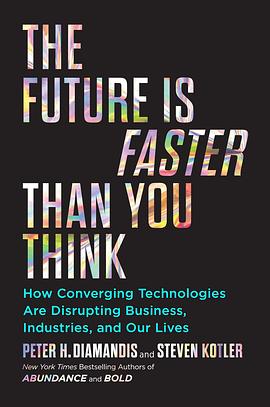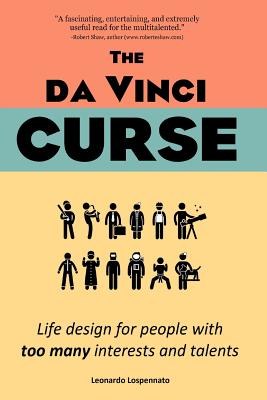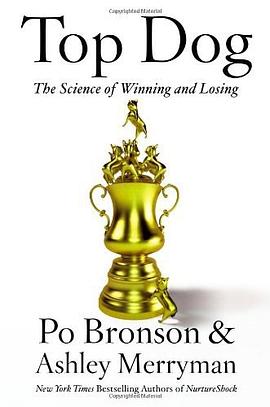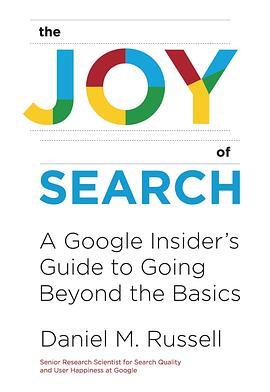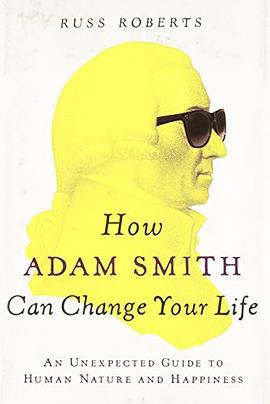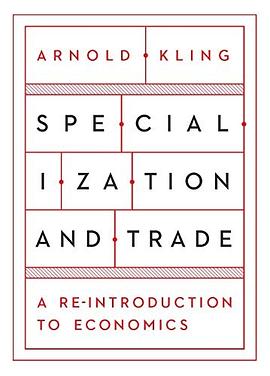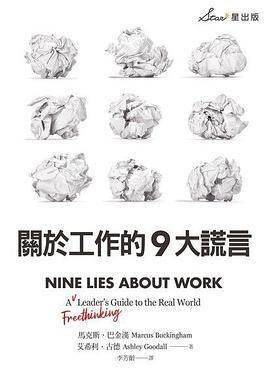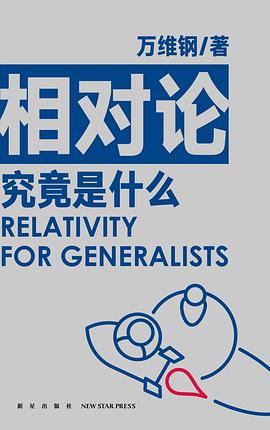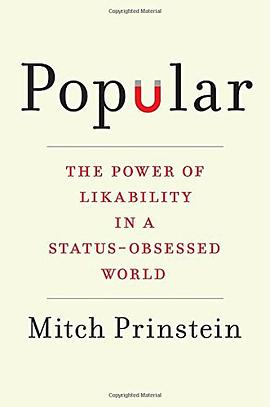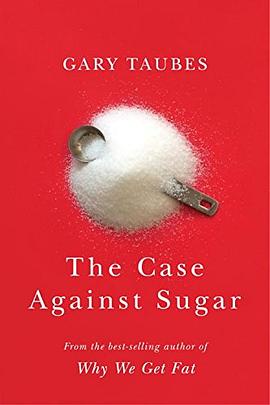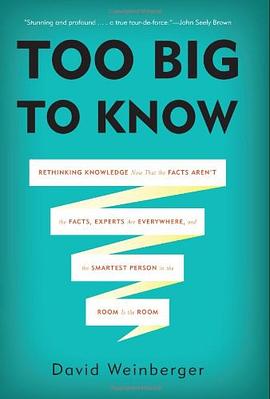
具体描述
An acclaimed economic historian's provocative and counterintuitive challenge to prevailing economic wisdom argues that consumption - not more saving and investment - represents America's path to renewed prosperity. In one of the most polarised periods in our political history, politicians from both sides of the aisle have found one thing on which they can agree: consumer excess is to blame for our moral and economic decay. Since the financial meltdown of 2008, economists, journalists, politicians and Americans of all political stripes have come to believe that to restore the American Dream and renew economic growth, we need to save more and spend less. Save more and spend less - what could be more obvious at a time of financial crisis? And yet our history tells us that this is exactly the wrong step to take, according to the acclaimed economic historian James Livingston. In his provocative new book, Livingston - author of the classic "Origins of the Federal Reserve System" - argues that under-consumption actually caused the current crisis and will prolong it. By viewing the Great Recession through the prism of the Great Depression, Livingston proves that private investment is not the engine of growth we assume it to be. Tax cuts for business are therefore a recipe for disaster. If our goal is to reproduce the economic growth of the postwar era, we need a redistribution of income that reduces corporate profits, raises wages, and promotes consumer spending. Critiquing both the left and the right, "Against Thrift" poses a fundamental challenge to prevailing economic theories, while offering a radically new analysis of the changing relations between work and income, production and consumption, shopping and identity. With wit and originality, Livingston suggests the unthinkable: that a larger dose of consumerism will benefit the economy, the environment, and...our souls.
作者简介
Professor of History
Ph.D., Northern Illinois, 1980
I started out as an economic historian writing about banking reform in the Progressive Era. My first book, which is still in print thanks to the financial crises created by supply-side economics since 1983, was Origins of the Federal Reserve System: Money, Class, and Corporate Capitalism, 1890-1913 (Cornell U Press, 1986). The success of post-structuralist theory and the return of pragmatism had meanwhile let me make my own “linguistic turn” toward cultural-intellectual history. The result was Pragmatism and the Political Economy of Cultural Revolution, 1850-1940 (UNC Press, 1994).
Before and between these books, I was writing for Socialist Revolution, In These Times, democracy, Marxist Perspectives, and Cineaste on critical realignments, fiscal politics, disco, Keynes, Freud, Shakespeare, corporate liberalism, diplomatic history, and Disney, pretty much in that order. Scholarly publications meanwhile appeared in Chicago History, The American Historical Review, Psycho-History Review, and Social Text.
Thereafter my abiding interest in pragmatism, consumer culture, and the rise of corporate capitalism led me toward a close study of modern feminism, particularly as it had emerged and evolved in the 20th-century US. The result was Pragmatism, Feminism, and Democracy: Rethinking the Politics of American History (Routledge, 2001).
The “election” of George W. Bush and the political, intellectual, and cultural consequences of 9/11 changed my attitude toward history. I started a blog in 2003 as a desperate, feeble protest against the militarization of American life and the march toward a “war on terror” in the Middle East. It has since evolved into a writing experiment, a place where I try out different voices and perspectives, but always with an eye on the past.
Among other things, the blog has taught me how to write for an audience broader—and deeper—than my fellow academics. At any rate the conversational, transactional style I learned there informed The World Turned Inside Out: American Thought and Culture at the End of the 20th Century (Rowman & Littlefield, 2009). This book is in most respects a product of teaching undergraduate classes on cultural history in which music, movies, and cartoon politics are the principal subjects.
When the Great Recession hit, I was swamped with demands to explain it, mostly from perfect strangers who had read the Fed book. Here’s a financial crisis, they said, what’s the story? So in October 2008, I wrote up a two-part comparison of the Great Depression and the current debacle, posted it at the blog, and offered it to History News Network. It went viral within a week. That’s how Against Thrift: Why Consumer Culture is Good for the Economy, the Environment, and Your Soul (Basic Books, 2011), and op-eds for Wired, The New York Times, the Los Angeles Times, and The Christian Science Monitor, got written.
My current interests center on the intellectual revolution in the pilot disciplines of the postwar university, particularly in History departments—I’m 20,000 words into a book on the topic—and on the fetish of work in every current incarnation of critical theory, from Marxism to psychoanalysis. The latter interest has given me a tentative title for another book. F@!% WORK, I call it, with an endless subtitle that would just start as follows: Why “Full Employment’ is a Bad Idea, or, When Work Disappears, What Is To Be Done?
目录信息
PART ONE: OUR VERY OWN PERESTROIKA
CHAPTER ONE - Understanding Backward
CHAPTER TWO - How to Explain a Crisis
THEORIES OF CRISIS AND THE ORIGINS OF THE FED
EXPLAINING THE RECENT CRISIS: MISTAKES, MONOPOLY, MONEY, MORALITY
THE MISSING M-WORD
CHAPTER THREE - Their Great Depression and Ours
THE COMMON SENSE OF OUR TIME: HOW AND WHY WE BELIEVE THE MYTH OF INVESTMENT
THE HISTORICAL EVIDENCE: CRISIS AND GROWTH SINCE 1919
CHAPTER FOUR - Living Forward
“GREAT CHANGES IN THE CODE OF MORALS”?
THE POSSIBILITIES OF ECONOMIC GROWTH
PART TWO: THE MORALITY OF SPENDING
CHAPTER FIVE - The Politics of “More”
WORKERS AS CONSUMERS: WHAT GOMPERS MEANT BY “MORE”
THE INTELLECTUAL BLUEPRINT OF A “PLEASURE ECONOMY”
THE “SOCIALIZATION” OF POLITICS
DUSK OF DAWN: THE BLACK AESTHETIC FROM DU BOIS TO SNCC
CHAPTER SIX - Exporting the Black Aesthetic
THE BLACK AESTHETIC AS A CONSUMER GOOD
THE VELVET REVOLUTION AND THE “CONSUMER SOCIETY”
CHAPTER SEVEN - The Wand of Increase
WHAT’S THE MATTER WITH ADVERTISING?
SELLING WITH SEX: THE CASE FOR ADVERTISING
DESIRING MACHINES
CHAPTER EIGHT - News from Nowhere
THE HERALD OF NEW VALUES
THE DANGERS OF ABUNDANCE
EROS AND CIVILIZATION
NEWS FROM NOWHERE
DON DRAPER’S UTOPIA
CHAPTER NINE - It Beats Working
THE PATHOS OF PRODUCTIVITY
MATTHEW CRAWFORD PUTS US BACK TO WORK
ANOTHER COUNTRY
THE CARE OF THE PLANET
THE FOOD REVOLUTION
“A SOMEWHAT DISGUSTING MORBIDITY”: WHEN FAT IS THE POLITICAL ISSUE
CODA - Bataille Made Me Do It
Appendix: - Capital in the American Economy: Kuznets Revisited
Acknowledgments
Bibliography
Index
· · · · · · (收起)
读后感
评分
评分
评分
评分
用户评价
在我阅读《Against Thrift》的过程中,我深深体会到了作者对于“人生体验”的重视。这本书不仅仅是关于金钱管理,更是一种关于如何生活的哲学。作者通过大量生动的例子,揭示了那些因为过度追求节俭而错失人生宝贵体验的人们。我开始反思,自己是否也因为那些“省下来的钱”而失去了更精彩的生活瞬间?比如,为了省下门票钱而放弃了一场期待已久的音乐会,或者为了省下交通费而错过了与远方朋友的相聚。这些“省”下来的钱,最终可能只是静静地躺在银行账户里,而那些失去的体验,却再也无法弥补。这本书让我明白,金钱的真正意义在于它能为我们带来的快乐、成长和回忆。它鼓励我们,在力所能及的范围内,去拥抱那些能丰富我们生命体验的“支出”,去创造那些能够珍藏一生的美好瞬间。这是一种关于“生命”的投资,它提醒我们,不要让过度的节约,成为阻碍我们享受人生、实现自我价值的绊脚石。
评分读完《Against Thrift》,我感受到了一种来自作者的深刻共鸣。它不仅仅是一本关于金钱的书,更是一本关于如何与自己、与世界相处的好书。作者以一种非常人性化的视角,探讨了“节俭”这一观念在现代社会中所扮演的角色,以及它可能带来的局限性。我开始反思,我所信奉的“节俭”是否真的符合我内心深处的愿望?是否我只是在遵循一种外在的社会规范,而忽略了自己真实的需求和渴望?这本书让我明白,真正的“富足”并非是物质的堆积,而是一种内心的丰盈和对生活的积极态度。它鼓励我们,在审视自己的消费习惯时,也要倾听自己内心的声音,去追求那些能够真正滋养我们灵魂的“支出”。这是一种关于“真诚”的实践,它教导我们如何与自己和解,如何在物质与精神之间找到那个最能代表“自我”的平衡点,从而活出一种更真实、更饱满的人生。
评分《Against Thrift》这本书,让我体验到了一种“解放”的快感。长期以来,我被“节俭”的观念所束缚,总觉得花钱就是一种“浪费”,就是一种“罪过”。而这本书则以一种非常理性的方式,为我打破了这种心理枷锁。作者通过对社会经济发展、个人成长路径的深刻分析,论证了在很多情况下,“支出”是一种必要的“投入”,是实现个人价值和推动社会进步的关键。我开始意识到,我所追求的“节俭”,在某些时候反而成为了我追求“自由”和“丰富人生”的障碍。这本书鼓励我,在不造成不必要浪费的前提下,去大胆地尝试,去拥抱新的体验,去投资于能够让我成长和快乐的事物。这种“解放”并非是鼓励我无度消费,而是让我能够更加自信、更加从容地去处理金钱,去享受生活,去追求我真正渴望的人生。这是一种关于“自主”的觉醒,它让我明白,我拥有决定如何使用金钱的权利,以及如何通过明智的“支出”来塑造更美好的未来。
评分这本书,让我开始重新审视“价值”的定义。在《Against Thrift》之前,我一直认为“价值”就等同于“价格”,越便宜的东西越有价值。但作者的论述,彻底颠覆了我的这种看法。他指出,真正有价值的事物,往往需要更高的“投入”,这不仅包括金钱,也包括时间和精力。我开始反思,自己是否因为过于追求“低价”而忽视了事物的“真正价值”?比如,我是否为了购买一件便宜但质量不佳的商品,而不得不频繁更换,最终花费了更多的时间和金钱?或者,我是否为了省下一次体检的费用,而忽视了早期发现和治疗疾病的“价值”?这本书让我明白,我们在做任何“支出”决定时,都应该思考其背后所带来的“长期价值”和“潜在回报”,而不仅仅是眼前的“价格”。这是一种关于“洞察力”的训练,它教我们如何透过价格的表象,看到事物背后更深层的意义和影响。
评分《Against Thrift》这本书为我提供了一个全新的视角来理解“慷慨”和“享受”的价值。一直以来,我们被教导要“量入为出”,要“未雨绸缪”,这些观念根深蒂固,以至于当书名出现时,我本能地产生了一种警惕。然而,阅读过程中,我逐渐发现作者并非在宣扬一种无度的挥霍,而是在探讨一种更具智慧的消费和生活态度。作者通过对大量案例的分析,生动地展示了那些敢于在合适时机“付出”和“体验”的人,往往能获得更丰厚的回报,无论是物质上的还是精神上的。我开始思考,节俭是否也可能成为一种“隐形贫困”,即虽然拥有一定的物质基础,但却因为过度保守而失去了体验更美好事物的机会,错过了可能改变人生轨迹的投资。这本书让我意识到,人生的价值不仅仅在于积累了多少物质财富,更在于我们体验了多少精彩,付出了多少爱,以及创造了多少可能性。这是一种关于“花钱”的哲学,它鼓励我们更积极地参与到生活中来,去拥抱那些能丰富我们生命体验的“支出”。
评分《Against Thrift》这本书对“效率”的理解,让我耳目一新。在我们的传统观念里,节约往往与“省钱”划等号,而本书则将“效率”提升到了一个更重要的位置。作者认为,真正的“节约”并非简单地减少支出,而是最大化地利用资源,实现最大的价值。他通过分析不同的人生阶段和目标,阐述了在某些情况下,“花钱”反而是一种提高效率的手段。例如,投资于教育、健康、或者能提升工作效率的工具,这些“支出”的回报可能远超其本身的花费。我开始思考,自己是否在很多地方的“节约”反而降低了整体的效率?比如,为了省下买一件高质量工具的钱,而不得不花费更多的时间和精力去处理低效率的替代品,或者因为不舍得花钱请专业人士,而导致项目延期甚至失败。这本书让我认识到,我们应该以一种更动态、更长远的眼光来看待金钱的使用,将“支出”视为一种战略性的“投入”,而不是仅仅的“消耗”。这是一种关于“智慧”的投资,它教我们如何在有限的资源下,实现价值的最大化。
评分《Against Thrift》这本书,让我对“投资”有了更深层次的理解。一直以来,我将“节俭”视为一种保守的资产积累方式,但这本书却挑战了我的这种认知。作者通过对经济学原理的深入剖析,以及对个体和社会发展案例的细致研究,指出那些固守“节俭”观的人,往往会错失重要的“投资”机会。我开始思考,我所理解的“节约”是否真的有益于长期的财富增值?比如,当市场出现有利可图的投资项目时,我是否因为害怕承担风险而选择了“保守”的节俭,从而错失了可能带来高额回报的机会?或者,当我需要投资于能够提升自身能力或效率的工具时,我是否因为“舍不得”而拒绝了这种“明智的支出”?这本书让我认识到,真正的“节俭”并非是绝对的“不花钱”,而是在审慎评估风险和收益后,做出最有利于长期发展的“支出”决策。这是一种关于“增长”的智慧,它教我们如何在“花钱”与“储蓄”之间找到那个能推动我们不断前进的最佳平衡点。
评分阅读《Against Thrift》的过程,我体验到了一种思维的“解压”。从小到大,我们被告知要“省着点花”,要“不要乱花钱”,这些话语像是一种无形的约束,让我们在消费时总带着一丝愧疚感。这本书则以一种非常理性的方式,为我们打破了这种束缚。作者的论证非常扎实,他没有回避过度消费的潜在风险,而是通过深入的分析,指出那些因为“过度节俭”而错失发展机会、限制生活品质的例子。我开始反思,自己是否也陷入了某种“节约陷阱”,例如为了省一点小钱而牺牲了宝贵的休息时间,或者因为害怕花钱而拒绝了参与一次能拓展视野的旅行。这本书让我看到,在某些情况下,明智的“支出”是一种投资,是对自身价值的肯定,也是对未来发展的驱动。它鼓励我们审视自己的消费习惯,区分“必要性”与“习惯性”,并在不损害长期利益的前提下,给予自己更多的“自由度”。这是一种关于“平衡”的艺术,它教会我们如何在责任与享受之间找到最适合自己的那个点。
评分这本书的书名《Against Thrift》一开始就引起了我的强烈好奇,它似乎在挑战一个我们从小到大都被灌输的“美德”——节俭。在如今这个消费主义盛行的时代,提出“反对节俭”无疑是一记响亮的耳光,或者说是一次大胆的叛逆。我迫不及待地想知道,作者究竟是如何阐述这一观点的。这本书会不会是对我们过去陈旧观念的颠覆,是对生活方式的重新定义?我预想,作者可能会从经济学、社会学、心理学等多个角度来剖析节俭的负面影响,亦或是指出过度节俭可能带来的局限性。也许,作者会引导我们思考,真正的“富足”并非仅仅体现在物质上的储备,更在于精神上的满足和对生命体验的追求。读这本书,我期待着能打开一扇新的认知大门,重新审视自己在金钱和生活中的位置,学会如何在物质与精神之间找到平衡,甚至是在某些时候,放下不必要的顾虑,去拥抱更广阔的生活可能性。这是一种关于解放的承诺,是对被无形枷锁束缚的灵魂的呼唤,让我充满期待。
评分翻开《Against Thrift》,我被作者严谨的逻辑和深刻的洞察力深深吸引。它并非那种哗众取宠的口号式宣言,而是以一种娓娓道来的方式,抽丝剥茧地揭示了“节俭”这一看似美德的概念背后所隐藏的复杂性。作者并没有否定所有形式的节约,而是着重探讨了那些束缚个人发展、阻碍社会进步的“过度节俭”或“僵化的节俭观”。我尤其欣赏书中对历史背景的梳理,通过回顾不同时代社会对节俭的理解和实践,映照出当下我们所面临的挑战。书中的论述让我开始反思,那些我们信奉了多年的“省钱之道”,是否真的符合我们现阶段的生活需求和人生目标?是否在不经意间,我们就将自己的生活圈越缩越小,将自己的视野越绑越紧?作者提出的观点,就像一面镜子,让我看到了自己过去在消费和储蓄上的盲点,也促使我去思考,如何在不浪费资源的前提下,更有效地利用金钱,去投资自己,去体验生活,去创造价值。这是一种理性的觉醒,是对个人能动性的重新激活,让我感觉自己正在与作者一同探索更富于活力的生活方式。
评分 评分 评分 评分 评分相关图书
本站所有内容均为互联网搜索引擎提供的公开搜索信息,本站不存储任何数据与内容,任何内容与数据均与本站无关,如有需要请联系相关搜索引擎包括但不限于百度,google,bing,sogou 等
© 2026 qciss.net All Rights Reserved. 小哈图书下载中心 版权所有



